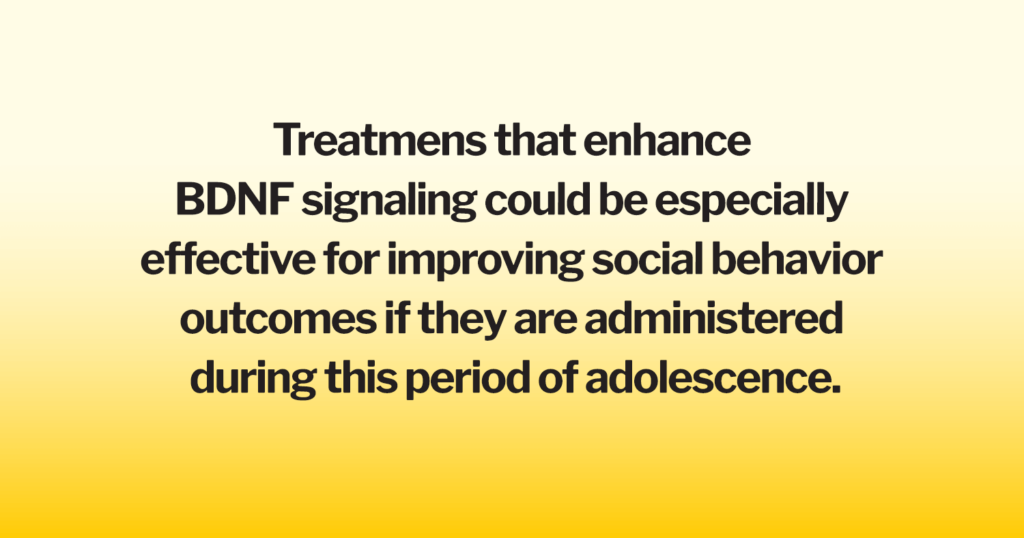Social Anxiety Susceptibility Linked to a Specific Brain Circuit and Genetic Variation

Changes in social behavior are common in autism, schizophrenia, depression, anxiety, and a variety of other psychiatric disorders, but the neurobiological basis of these problems is not well understood. Recent research published in Molecular Psychiatry, provides a better understanding of these changes by identifying a neural circuit in the brain that when disrupted through a growth factor deficit, results in an elevated risk to develop long-lasting social anxiety.
2009 One Mind Rising Star Awardee, Francis S. Lee, M.D., Ph.D., and 2015 Janssen / One Mind Rising Star Translational Research Awardee, Conor Liston, M.D., Ph.D., both of Weill Cornell Medical College, along with B.J. Casey, Ph.D. of Yale University are leading this research.
Through their two parallel studies in humans and mice, their research targeted a circuit in the brain that plays a critical role in regulating social interaction behavior and sociability across species. This circuit connects the orbitofrontal cortex in the cerebral cortex to the basolateral Amygdala (BLA), a region in the brain that is involved in processing emotions. By performing a series of imaging experiments in humans and a range of experiments in the mouse models of anxiety, the team was able to show that when a key molecule (brain-derived neurotrophic factor or BDNF) is insufficiently available during adolescence, the development of this brain circuit is disrupted, leading to long-lasting changes in social behavior and brain circuit function.
To obtain these findings, the researchers bred some of the mice to carry the human version of a BDNF genetic variant (called Val66Met) that impairs the ability to secrete the BDNF protein. When they limited BDNF availability both in adolescent mice and adult mice, they found that this limiting had no impact on susceptibility to social anxiety behaviors for the adult mice, but that for the adolescent mice, the reduced BDNF was not enough to support proper working of OFC-BLA circuitry. They also found that boosting the expression of BDNF in the adolescent mice that carried the Val66Met genetic variant nullified any social anxiety once the mice matured.
These results are important for at least two reasons. First, previous studies have shown that in some individuals, anxiety disorders are associated with a common human genetic variant that influences BDNF signaling. The results from this study by Drs. Lee, Liston, and Casey help to explain why: they show that deficits in BDNF signaling during adolescence disrupt the development of this orbitofrontal-amygdala brain circuit, leading to long-lasting changes in social behavior. Second, their results identify a developmental critical period in adolescence when BDNF is especially important, which suggests that treatments that enhance BDNF signaling could be especially effective for improving social behavior outcomes if they are administered during this period of adolescence.
The team’s use of parallel human and mouse model studies was critical. On the one hand, human neuroimaging studies have identified some of the brain circuits that are associated with changes in social behavior in patients, but they do not allow for the same level of experimental control that can be achieved in mouse models. On the other hand, while mouse models offer many advantages, it is often difficult to understand how relatively simple social behaviors in mice relate to much more complex social behaviors in healthy human subjects and patient populations. By combining these two study types, Drs. Lee, Liston and Casey have elicited discoveries that offer potential to benefit patients soon.
One Mind is strongly supportive of this important research and are enthusiastic about its potential to aid in the development of BNDF-based treatments and interventions. We are honored to have bolstered both Dr. Lee and Dr. Liston’s early-career research via our Rising Star Awards program and are proud of their growing productivity toward healing the lives of people with or at risk for social anxiety.
Watch Dr. Lee present at our 2010 Music Festival for Brain Health
Watch Dr. Liston present at our 2015 Music Festival for Brain Health
